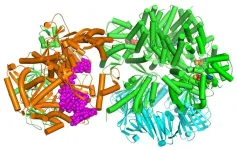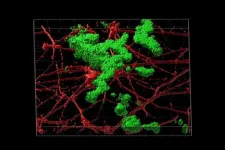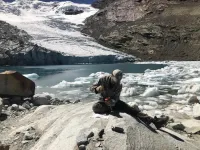Climate anomalies may play a major role in driving cholera pandemics
Global climate change could create more opportunities for rise and spread of new cholera strains
2024-08-01
(Press-News.org) New research suggests that an El Niño event may have aided the establishment and spread of a novel cholera strain during an early 20th-century pandemic, supporting the idea that climate anomalies could create opportunities for the emergence of new cholera strains. Xavier Rodo of Instituto de Salud Global de Barcelona, Spain, and colleagues present these findings in the open-access journal PLOS Neglected Tropical Diseases.
Since 1961, more than 1 million people worldwide have died in an ongoing cholera pandemic, the seventh cholera pandemic to have occurred since 1817. The drivers of past cholera pandemics have been unclear, but one hypothesis holds that anomalous climate conditions may act synergistically with genetic changes of Vibrio cholerae—the bacterium that causes the disease—to facilitate the spread and dominance of new strains.
To help clarify potential links between climate and cholera, Rodo and colleagues applied a variety of statistical and computational tools to historical records of climate conditions and cholera deaths in various regions of former British India during the sixth cholera pandemic, which lasted from 1899 to 1923. They also compared past conditions with climate and cholera data for the ongoing pandemic.
This analysis revealed that anomalous patterns of cholera deaths from 1904 to 1907 occurred alongside out-of-the-ordinary seasonal temperatures and rainfall levels associated with an El Niño event; the timing of these occurrences correlates with the establishment of a new invasive strain during the sixth pandemic. In addition, these historical climate conditions show similarities to strong El Niño events that have been associated with cholera strain changes during the ongoing pandemic.
These findings support the possibility that anomalous climate events could help facilitate the establishment and spread of new cholera strains.
The researchers then explored future possibilities for climate-facilitated emergence of new cholera strains using standard climate prediction models. They found that climate change-driven increases in climate variability and extremes could boost the chances of emergence of novel strains through the end of the current century.
Meanwhile, to deepen understanding of this deadly disease, the scientists call for further research focused on the interplay of cholera evolution and climate anomalies.
Dr. Rodó and co-author Dr. Mercedes Pascual summarize: “Variation in climate conditions or the evolutionary change of a pathogen can be important drivers of major epidemics and pandemics. But these two drivers are typically considered separately in studies seeking to explain the emergence of unusually large outbreaks…here, we present indirect evidence that the two can act together to synergistically underlie the establishment and widespread transmission of a new strain.”
############
In your coverage, please use this URL to provide access to the freely available article in PLOS Neglected Tropical Diseases:
http://journals.plos.org/plosntds/article?id=10.1371/journal.pntd.0012275
Citation: Rodó X, Bouma MJ, Rodríguez-Arias M-À, Roy M, De Yebra P, Petrova D, et al. (2024) Strain variation and anomalous climate synergistically influence cholera pandemics. PLoS Negl Trop Dis 18(8): e0012275. https://doi.org/10.1371/journal.pntd.0012275
Author Countries: Germany, Spain, United States
Funding: We thank the Indian Institute for Tropical Meteorology at Pune (http://www.tropmet.res.in) for supplying meteorological data and the early support for our cholera work by NSF-NIH (Ecology of Infectious Diseases Program, NSF 0545276 and 0430120) and NOAA (Oceans and Health, NA040AR460019) to M.P. X.R acknowledges the support of the PERIS-PICAT project of the Catalan Dep. Salut and PARA-CLIM-CHANDIRGARGH of the New Indigo EU-India program. We acknowledge support from the Spanish Ministry of Science and Innovation through the “Centro de Excelencia Severo Ochoa 2019–2023” Program (CEX2018-000806-S), and support from the Generalitat de Catalunya through the CERCA Program. The funders had no role in study design, data collection and analysis, decision to publish, or preparation of the manuscript.
END
[Attachments] See images for this press release:


ELSE PRESS RELEASES FROM THIS DATE:
2024-08-01
Recent joint research led by Professor AN Zhisheng from the Institute of Earth Environment of the Chinese Academy of Sciences has revealed the pivotal role of the growth of the Antarctic ice sheet and associated Southern Hemisphere sea ice expansion in triggering the mid-Pleistocene climate transition (MPT). It has also shown how asymmetric polar ice sheet evolution affects global climate.
The MPT refers to a shift in Earth’s climate system between about ~1.25–0.7 million years ago, marking a shift to more pronounced and regular ...
2024-08-01
GRAND RAPIDS, Mich. (Aug. 1, 2024) — Humans and baker’s yeast have more in common than meets the eye, including an important mechanism that helps ensure DNA is copied correctly, reports a pair of studies published in the journals Science and Proceedings of the National Academy of Sciences.
The findings visualize for the first time a molecular complex — called CTF18-RFC in humans and Ctf18-RFC in yeast — that loads a “clamp” onto DNA to keep parts of the replication machinery from falling off the DNA strand.
It is the latest discovery from longtime collaborators Huilin Li, Ph.D., of Van Andel Institute, ...
2024-08-01
Researchers at Washington University School of Medicine in St. Louis have developed a way to capture the effects of aging in the development of Alzheimer’s disease. They have devised a method to study aged neurons in the lab without a brain biopsy, an advancement that could contribute to a better understanding of the disease and new treatment strategies.
The scientists transformed skin cells taken from patients with late-onset Alzheimer’s disease into brain cells called neurons. Late-onset Alzheimer’s ...
2024-08-01
Chestnut Hill, Mass (8/1/2024) – Rocks recently exposed to the sky after being covered with prehistoric ice show that tropical glaciers have shrunk to their smallest size in more than 11,700 years, revealing the tropics have already warmed past limits last seen earlier in the Holocene age, researchers from Boston College report today in the journal Science.
Scientists have predicted glaciers would melt, or retreat, as temperatures warm in the tropics – those regions bordering the Earth’s ...
2024-08-01
WEST LAFAYETTE, Ind. — A Purdue University invention that may shorten construction timelines and increase long-term durability of concrete highways, bridges and other transportation infrastructure is emerging as a viable alternative to methods that have been used for decades to estimate when newly poured concrete is mature enough to withstand heavy loads such as those from trucks and other vehicles.
The American Association of State Highway and Transportation Officials’ Committee on Materials and Pavements (AASHTO COMP) has approved the Purdue-developed method as a new national ...
2024-08-01
BOSTON—Plant-based proteins have major health advantages over animal-based proteins, according to a New England Journal of Medicine letter to the editor by Neal D. Barnard, MD, published Aug. 1, 2024. New findings show that all plants contain all essential amino acids, in contrast to the common but mistaken belief that plants lack one or more amino acids. Of the 20 amino acids that are the building blocks of protein, nine cannot be produced by the human body. All are found in plant sources.
“In addition, plant-based ...
2024-08-01
WASHINGTON, D.C., Aug. 1, 2024 — The latest issues of three American Psychiatric Association journals, The American Journal of Psychiatry, Psychiatric Services, and Focus are now available online.
The August issue of The American Journal of Psychiatry brings together research on PTSD, phobias, suicide attempts, and psychiatric vulnerabilities. Highlights include:
Neurobiology and Treatment of Posttraumatic Stress Disorder.
Testing Quantitative and Qualitative Sex Effects in a National Swedish Twin-Sibling Study of Posttraumatic Stress Disorder.
Sexual Identity Continuity and Change in a U.S. National Probability Sample of Sexual Minority Adults: Associations ...
2024-08-01
By Jade Boyd
Special to Rice News
Rice University’s Angel Martí has been elected a fellow of the American Chemical Society (ACS), one of his discipline’s highest honors.
Martí, professor and department chair of chemistry, is among 37 newly elected fellows announced by ACS this week. With more than 200,000 members in 140 countries, ACS is one of the largest scientific organizations. Fewer than 1% of its members are fellows, a distinction reserved for those with exemplary records of both service to the society and outstanding scientific or professional achievement.
Martí joined ...
2024-08-01
HOUSTON – (August 1, 2024) – Materials behave differently in different size regimes, and researchers tend to cluster their efforts either at the nanoscale, examining materials in atom-level detail, or at the microscale, looking at structures between three and five orders of magnitude greater.
However, less is known about what happens in the “in-between” realm spanning from 10 billionths to 1 millionth of a meter.
“We call this the mesoscale,” said Rice University materials scientist Lane Martin, who together with collaborators at the U.S. Department of Energy’s (DOE) Argonne National Laboratory and Lawrence Berkeley National ...
2024-08-01
ACM, the Association for Computing Machinery, has recently published the first issue of Proceedings of the ACM on Software Engineering (PACSME), a new Gold Open Access journal publishing top-quality, original research on all aspects of software engineering, from requirements elicitation to quality assessment, design, maintenance, evolution, and deployment. PACMSE covers a broad range of topics and methods that help conceive, create, and maintain better software be it embedded, cloud-based, mobile and ubiquitous, or runs on conventional computers.
“The overarching goal of the new PACSME journal is to make ...
LAST 30 PRESS RELEASES:
[Press-News.org] Climate anomalies may play a major role in driving cholera pandemics
Global climate change could create more opportunities for rise and spread of new cholera strains









